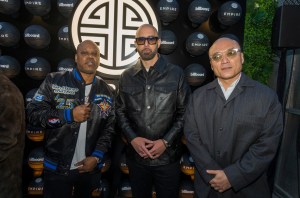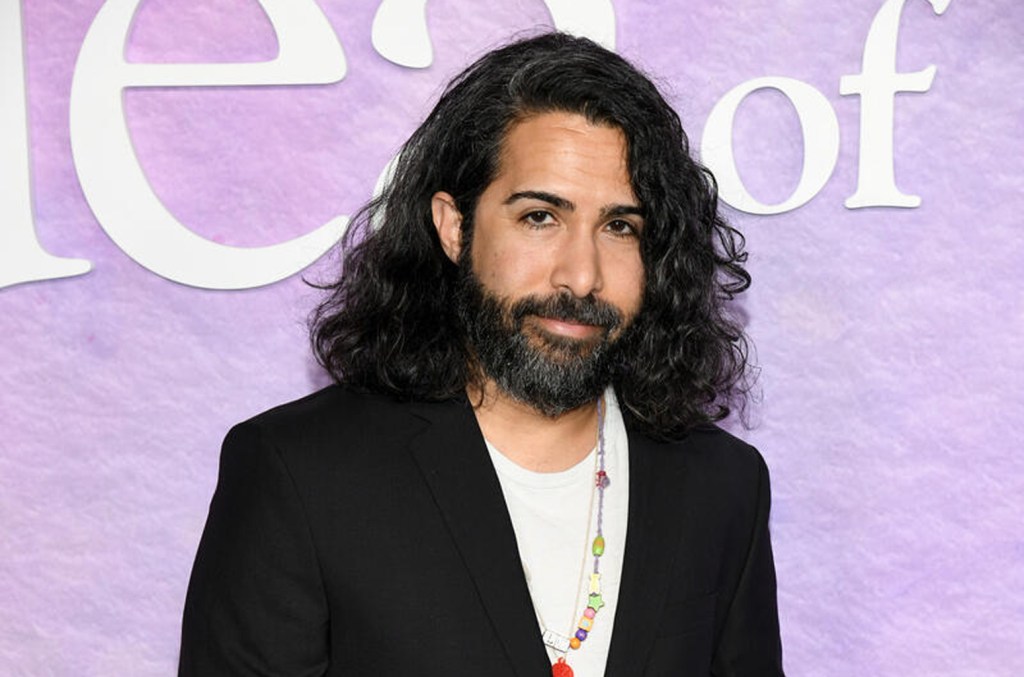Business
Page: 119
HYBE is partnering with Grammy-winning producer and OneRepublic frontman Ryan Tedder to form a new boy group, the company announced Thursday (Feb. 19). The project, to be led by Tedder alongside HYBE chairman Bang Si-Hyuk and HYBE America CEO Scooter Braun, will kick off with a global talent search. Once the members of the group […]
The REPUBLIC Collective, which includes Island Records, Def Jam Recordings, Mercury Records and Republic Records, has announced several executive promotions and new hires.
Recently, Jeffrey Remedios, former Universal Music Canada chief, was appointed president of strategic development. In his new role, Remedios oversees high-priority growth initiatives for Republic’s labels, focusing on international A&R, Republic recording studios, brand expansion, and more, reporting directly to REPUBLIC Collective CEO Monte Lipman and COO Avery Lipman.
Key promotions across departments include Joe Carozza as executive vp and global media officer, Brittney Ramsdell as evp of creative sync, Julie Vastola as svp of creative, and Zoë Briggs as vp of global marketing. Gary Spangler revamped the Audience team, elevating Natina Nimene to evp of urban audience and artist relations, Lucas Romeo to evp of pop audience, Brett Dumler to svp of pop audience, James Brown to svp of urban audience, and Roya Raji to vp of touring.
Trending on Billboard
Kevin Lipson expanded his team with strategic hires and promotions, including longtime Capitol Music Group svp of streaming strategy Jeff Temske coming over as evp of global research and analytics, and Colin Yost elevated to vp of innovation and gaming partnerships. Additionally, Brian Sutnick was promoted to evp of global replay strategy, Ryan Stevens to svp of commerce, Charlene Thomas to svp of global replay strategy, and Blair O’Brien to vp of commerce.
Monte Lipman praised these recent advancements, calling them “hard-earned and well-deserved,” and emphasized the collective’s commitment to artist development and finding “generational talent.”
The executive changes follow another record-breaking year for REPUBLIC Collective, which topped Billboard’s major year-end label rankings for the fourth consecutive year. In 2024, the collective amassed 72 albums on the Billboard 200, including 13 No. 1s, and 209 songs on the Hot 100, with eight chart-toppers, reinforcing its dominance in the music industry.
Record executive and former artist manager Abou “Bu” Thiam has formed a new partnership with Atlantic Music Group that brings his BuVision label to the Warner-owned major, Billboard has learned. As part of the deal, BuVision’s artists’ projects will now be released and marketed through Atlantic moving forward. Artists as part of the venture include […]
An attorney for The 1975 says frontman Matt Healy and his bandmates cannot be held responsible for the cancellation of the July 2023 Good Vibes Festival in Kuala Lumpur, which was shut down by authorities after Healy kissed one of his male bandmates on stage, violating the country’s ban on same-sex relationships. As a result […]
The honorees for the Country Radio Hall of Fame Class of 2025 were revealed Wednesday (Feb. 19) during CRS Honors as part of the Country Radio Seminar, which is happening in downtown Nashville Feb. 19-21.
This year’s radio category honorees are Ginny “Rogers” Brophey, Clay Hunnicutt and Gregg Swedberg. Honorees in the on-air personality category are Big D & Bubba, Mary McCoy and Rowdy Yates.
The honorees will be feted during the Country Radio Hall of Fame Induction and Dinner set for July 21 at the Virgin Hotel Nashville.
Trending on Billboard
The Country Radio Hall of Fame honors individuals who have made a significant and enduring impact on the industry, with inductees being recognized in the categories of on-air personality (honoring the achievements of on-air talent), and radio (honoring professionals behind the scenes in programming, management and sales). To qualify, potential honorees must have worked in the radio industry for at least 20 years, with 15 years in the country format.
Big D & Bubba first joined forces in 1996 at WTGE in Baton Rouge, La., and launched their self-syndicated morning show three years later. They have been honored by the Country Music Association and the Academy of Country Music. In 2014, they formed their own company, Silverfish, which continues to be the duo’s radio home, extending to 97 radio stations and partnering with 71 broadcast companies. Since 2011, the duo have been heard on the Armed Forces Radio Network each morning.
McCoy has been drawing in radio listeners in Conroe, Tex., for more than seven decades, a feat that has been recognized by the Guinness Book of World Records. Her radio career launched in 1951 when she joined KMCO-AM in Conroe. In the early 1990s, McCoy was one of the first voices heard on KVST-FM, a new radio station in Conroe. She has since played country music on K-STAR Country 99.7 for more than 30 years. McCoy is currently heard six days a week with on-air co-host Larry Galla. She was inducted into the Texas Radio Hall of Fame in 2010 and was part of the 2024 National Radio Hall of Fame class.
This year, Yates celebrates four decades working in radio. His career launched in Denton, Tex., in the mid-1980s, after which he ascended to dual programming/on-air roles in College Station, Tex., and Oklahoma City, Okla., before rising to roles at KIKK and KILT in Houston as well as KVOO in Tulsa, Okla. In 2004, Yates surged into nationally syndicated radio with an eight-year run hosting Country Gold. Since 2013, he’s owned, operated and worked as a host on Syndicated Media LLC Houston, and since 2019, he’s served as operations manager/PM for RFC Media/Suite Radio Houston, for country radio formats The Brand and The Legend. He also hosts The Rowdy Ride Home. Yates has been honored by the Academy of Country Music and the CRS-Country Aircheck Awards and is a member of the Texas Radio Hall of Fame.
Brophey has worked in the radio industry for more than 40 years, with roles at WBOS, WKLB and WBWL. Since 2022, she has worked as brand manager/air talent/content creator at Townsquare Media’s WOKQ/Dover/Portsmouth. During her time at WBWL, Brophey joined the Country Cares radiothon program benefiting St. Jude Children’s Research, which earned her the “St. Jude Radio Partner of the Year” honor in 2019. Her St. Jude commitment included nine years of service on the St. Jude Radio Advisory Board. Brophey has been honored by the Country Music Association and the Academy of Country Music, as well as by the CRS/Country Aircheck Awards and the New Hampshire Broadcasters Association.
Hunnicutt has earned significant success in the radio and label sides of the business. He started at WUSY/Chattanooga, where he served in roles including production director, imaging director, assistant program director and ultimately program director. He then worked as program director of WGAR/Cleveland, director of programming for Clear Channel’s five-station cluster in Nashville, and held day-to-day program director responsibilities for WSIX. Hunnicutt later took on a similar role for iHeart/Atlanta with country station WUBL, before taking on a series of corporate roles for iHeart, including executive vp of programming for the company’s major markets. At iHeart, he went on to serve as vp/brand manager of country programming for the company’s 143 country stations, as well as vp/GM of iHeartMedia’s national programming platforms. He’s been honored on Billboard‘s Power 31 list and named one of Radio Ink‘s top 50 programmers, and has served on the boards for the CMA, ACM and Country Radio Broadcasters. He also is a member of Leadership Music’s class of 2005. Later in his career, Hunnicutt started Big Loud Records as president, helping to launch the careers of Morgan Wallen, Hardy and more. He subsequently served as GM at Big Machine Records and most recently served as executive vp of label operations for all of Big Machine Label Group’s imprints.
Swedberg has spent 34 years programming at KEEY (K102) in Minneapolis, Minn. He was named K102 program director in 1992, then rose to operations manager, senior vp/programming, regional senior vp/programming and national country format coordinator for the station’s parent company iHeartRadio. Swedberg was previously a board member for the Country Radio Broadcasters and has been a member of Radio Ink’s most influential country program directors every year since 2000. KEEY has won multiple station of the year honors from the ACM and CMA. Several personalities on K102 have also been honored by both organizations during Swedberg’s time as program director.
Live Nation is ending its “concerts all summer long” program at the company’s amphitheaters and plans to replace the multi-show offering with something different, company officials tell Billboard. On Tuesday (Feb. 18), the Live Nation Lawnie Instagram page announced the end of the six-year-old program, in which music fans paid a flat fee for a […]
Sony Music Entertainment is asking a judge to throw out a lawsuit brought against the company by Patrick Moxey‘s Ultra International Music Publishing late last year, claiming the suit was an act of “retaliation” against the major label after it filed its own lawsuit against the publishing outfit two years prior.
Ultra International Music Publishing and Ultra Music Publishing Europe brought the lawsuit against Sony Music Entertainment and its subsidiaries — including Ultra Records, which Moxey sold his remaining 50% share of to Sony in 2021 — last November over allegations of copyright infringement, claiming Sony and its affiliates had been using Ultra Publishing’s compositions without a license. Filed in New York federal court, the complaint alleged that Ultra Publishing had conducted an audit finding that Sony had been underpaying royalties to the publisher and its songwriters “for years” — but that after bringing the results of the audit to Sony’s attention, the major label “failed” and “refuse[d]” to pay Ultra Publishing the royalties it was due.
Ultra Publishing claimed that after Sony’s alleged refusal, it ceased granting the music giant licenses to the company’s compositions, but that Sony nonetheless continued uploading tracks featuring Ultra Publishing-owned compositions to streaming services and selling them as digital downloads and physical releases, among other exploitations. The lawsuit concerned more than 50,000 compositions by artists including Ed Sheeran, Madonna, Rihanna and others.
Trending on Billboard
In its response, filed on Monday (Feb. 17) by attorney Tal Dickstein, Sony Music called the lawsuit “an ill-conceived effort by Plaintiffs — two music publishing companies owned by Patrick Moxey — to retaliate against” Sony Music for an earlier lawsuit it filed against Ultra Publishing for the continued use of the Ultra name. In that complaint, filed in November 2022, Sony attested that Moxey had signed away his rights to the Ultra trademark after selling the company his remaining stake in Ultra Records, which he founded in 1995.
Sony claims Ultra Publishing attempted to justify the “nefarious timing” of its own lawsuit — which allegedly dropped the day before the trial for the trademark lawsuit began — “by claiming this lawsuit stems from an audit of the music publishing royalties that Sony Music Entertainment paid to Plaintiffs.” However, Sony alleges that the audit in question, “which involved payments made by Sony Music Entertainment to Plaintiffs through 2016,” was in fact “settled in principle years ago for a small fraction of the amount claimed, and Plaintiffs never pursued those audit claims any further.”
Sony’s filing goes on to say that it and Ultra Publishing “continued working together after the audit was settled, with Sony Music Entertainment paying publishing royalties on the musical compositions that were the subject of the audit without objection from Plaintiffs, and working to license and pay the corresponding publishing royalties for well over a thousand other compositions owned in whole or in part by Plaintiffs.”
“Sony Music Entertainment’s licensing practices are both appropriate and entirely consistent with the licensing practices of every other leading record label that releases new sound recordings, including record labels that Moxey himself controlled in the past and currently owns,” the filing continues. “Moreover, Plaintiffs’ own songwriters and producers continue to write songs and collaborate with SME artists with the intention and expectation that the resulting sound recordings incorporating the underlying musical compositions will be commercially released — underscoring the obvious question of whether Plaintiffs’ attempted boycott of SME is in their songwriters’ best interest.”
An attorney for Ultra International Music Publishing did not immediately respond to Billboard‘s request for comment.
On Saturday, Feb. 15, Billboard and EMPIRE came together at EMPIRE’s San Francisco studios to celebrate Billboard’s second annual Sports and Music issue, honoring some of the most powerful people operating at the intersection of the industries of sports and music. The issue, which features EMPIRE founder/CEO Ghazi on the cover, as well as a […]

Sean “Diddy” Combs‘ attorneys have filed a motion seeking the dismissal of a sex trafficking charge in the hip-hop mogul’s indictment, citing the alleged racist origins of the count. Combs’ legal team, which made the filing official on Tuesday (Feb. 18) in New York federal court, argues that “no white person has ever been the […]
Hit songwriter Savan Kotecha has partnered with Universal Music India, Republic Records and Represent to launch an initiative aimed at discovering and developing India’s first globally impactful pop boy band. The nationwide talent hunt seeks to redefine India’s pop landscape by creating a group that reflects the country’s diversity, while also “igniting an unprecedented wave of fandom and paving the way for the Indian Teen Pop economy,” according to the announcement.
Kotecha, a Grammy, Oscar and Golden Globe-nominated native of Texas, has played a pivotal role in shaping modern pop music over the last 15-plus years. His extensive catalog includes hits for Ariana Grande, One Direction, The Weeknd and Maroon 5. With a career that took off in Sweden alongside mentor Max Martin, Kotecha has contributed to chart-topping songs like Grande’s “Problem,” 1D’s “What Makes You Beautiful,” The Weeknd’s “Can’t Feel My Face” and Maroon 5’s “One More Night.” He also served as executive music producer for Eurovision Song Contest: The Story of Fire Saga.
Kotecha believes that India has long looked outside its borders for pop and teen idols, and this initiative aims to change that. “Boy bands have shaped generations around the world—now, it’s India’s turn,” he said. “We want to create a group that represents India’s dreams and sparks an unprecedented wave of fandom.”
Trending on Billboard
Universal Music Group India & South Asia managing director Sanujeet Bhujabal emphasized the project’s significance. “Our i-Pop strategy has focused on cultivating a Gen Z and Gen Alpha-driven sound in India. Partnering with Savan, we’re taking this vision global by launching India’s first true pop boy band. This will be the biggest talent hunt India has ever seen, and we are committed to building a long-term teen pop economy.”
Aayushman Sinha, founder of Represent, echoed this sentiment: “We’re stepping into a new era of talent development, something India has never seen before. More importantly, this project is about fostering sustainable careers for young artists and establishing pop music as a dominant cultural force.”
To shape the eventual band’s identity, the project has also partnered with Jugaad Motion Pictures.
Aspiring musicians can audition by following @greatestindianboyband on Instagram and submitting their entries on the contest’s website. To apply, candidates need to upload a video showcasing their talent and answering a few select questions. After a month-long selection process, shortlisted contestants will advance to the next round, with the final five then participating in what’s described as a “training bootcamp” ahead of their official debut.

 State Champ Radio
State Champ Radio 









